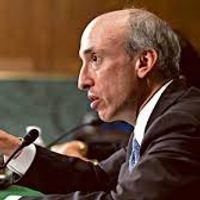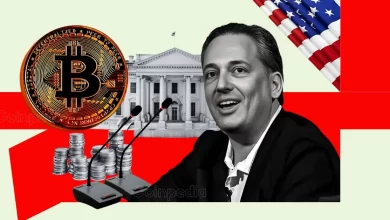
Lawyer challenges SEC Chair's impartiality on digital assets.
Controversy arises over classification of digital assets as securities.
Argument sparks industry discussion and potential defense strategy.
Jake Chervinsky, a well-known lawyer and Chief Policy Officer at the Blockchain Association, has raised concerns about the U.S. Securities and Exchange Commission (SEC) Chair, gary gensler


Gensler’s Perspective: All Digital Assets are Securities
The controversy revolves around Gensler’s belief that all digital assets, apart from Bitcoin, should be classified as securities. Since his appointment as the SEC Chair, Gensler has made no secret of his conviction, which Chervinsky claims amounts to prejudgment. By expressing his views so openly, Chervinsky suggests that Gensler has compromised his position as a neutral arbiter in the enforcement process known as the “Wells process.”
The Wells process serves as a formal procedure for SEC enforcement actions. It is designed to allow the SEC Commissioners to act as impartial judges, reviewing evidence and arguments presented by both the SEC staff and the enforcement targets before making any enforcement decisions. However, Chervinsky argues that Gensler’s preconceived notions about digital assets undermine this crucial process.
Chervinsky’s Argument: A Need for Fairness and Impartiality
By refusing to analyze the “facts and circumstances” surrounding each case, Gensler has, according to Chervinsky, invalidated the process, violating the law that demands recusal when an SEC Commissioner has preemptively adjudged a case.
The issue of prejudgment goes beyond individual cases, Chervinsky argues. If Gensler continues to participate in enforcement decisions, his bias could taint the entire enforcement process. To avoid the potential repercussions, Chervinsky insists that Gensler should recuse himself from all future decisions involving digital assets. Furthermore, any previous enforcement actions in which Gensler was involved should now be invalidated.
A Plea for Legal Advice
Chervinsky’s argument has stirred up the digital asset industry, potentially providing a new line of defense for anyone dealing with an SEC investigation or enforcement action. He suggests that anyone in such a situation should consult with their legal counsel to discuss the possibility of raising the issue of Gensler’s recusal with the SEC or a federal court.
The paper that Chervinsky refers to, while not legal advice, provides further context for his argument. It underlines the importance of preserving the fairness and impartiality of the SEC’s enforcement function, a vital component of the agency’s mission.









